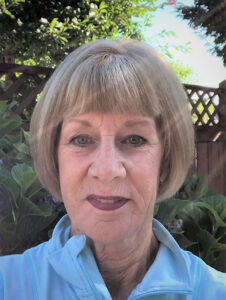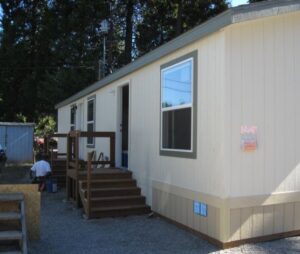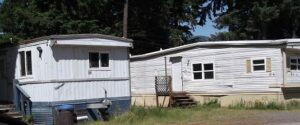Early in the new century, St. Vincent de Paul Society of Lane County came to recognize mobile/manufactured home parks for what many of them are: A vestige of housing that is truly affordable for low- to moderate-income households and a potential cost-saving alternative to new construction.
Dina Fortier and her staff of two dozen manage St. Vincent de Paul’s Mobile Home Division, the Girls Youth House, and senior housing in Marion County.

Dina Fortier and her staff of two dozen manage St. Vincent de Paul’s Mobile Home Division, the Girls Youth House, and senior housing in Marion County.
Unfortunately, the most affordable of the affordable tend to be older parks with substandard infrastructure beneath units in varying degrees of poor condition. A more encouraging scenario has parks that are newer and in relatively good condition, but whose owners are ready to cash out – that is, if they haven’t already done so by selling to investment groups that profit by continually raising fees.
Either way, MHP’s are attractive to developers as real estate ripe for redevelopment, specifically the kind that prices existing tenants out of the neighborhood. Over the past 15 years, SVdP has acquired some of both, for a total of seven mobile-home parks in Lane and Multnomah counties. An eighth combines mobiles and stick-built units. Altogether they comprise 378 manufactured-home units, spaces for units, and spaces for RVs.
SVdP Property Manager Dina Fortier oversees a portfolio that includes the Girls Youth House, senior housing in Marion County, and seven of the Agency’s eight MHP’s, all of which she describes as “older.”
“We go in and remove uninhabitable units and replace them with new energy-efficient homes,” she said.
Dina describes typical MHP dwellers as couples who purchased their homes many years ago – perhaps even raised families in them, never realizing the land could be sold from underfoot. After talk of MHP acquisition and redevelopment ricocheted around Portland in recent years, the prospect of even more homeless individuals and families compelled city officials to enact an ordinance prohibiting the purchase of MHP’s specifically for redevelopment.
Portland is unique in having drawn that line, leaving MHP dwellers elsewhere in Oregon to wonder about the future of their own investment as pressure increases to redevelop for a younger population and higher density. According to Dina, it’s not unthinkable that some community leaders simply want their parks to go away.
COVID-19 hasn’t made things easier, except that hundreds of people in SVdP-owned mobile-home parks have access to sewer, water and electricity, and some have new or refurbished manufactured homes. It lends to what nobody can buy: precious peace of mind.
St. Vincent de Paul’s MHP’s remain affordable and the management accessible and compassionate – good qualities in housing of any kind!
Click to view the Mobile Home Park page. 

Above: Mobile homes that cannot be rehabilitated, such as the two above at the Oakridge Mobile Home Park, are deconstructed and removed. At right, a worker puts the finishing touches on the deck of a newly installed manufactured home, also at Oakridge MHP. The park also got a community room/classroom and a playground.

